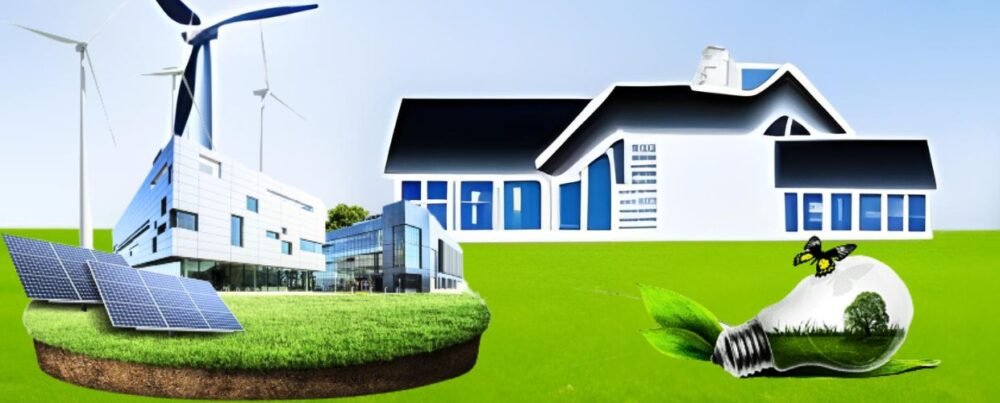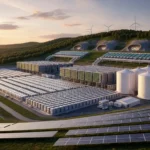Consumer energy solutions have emerged as critical to addressing the challenges posed by climate change and the need for sustainable living. In this article, we explore the concept of consumer energy solutions, their components, benefits, challenges, and potential to drive a transition toward a more sustainable future.
What is Consumer Energy Solutions?
Consumer energy solutions encompass various strategies, technologies, and behaviors that allow people to control energy consumption. These solutions are designed to help consumers reduce their energy usage, adopt renewable energy sources, and contribute to a more sustainable and resilient energy ecosystem. By empowering individuals with knowledge and tools, consumer energy solutions aim to create a more energy-conscious society aware of their actions’ environmental impact.
With the growing awareness of environmental issues, it is becoming increasingly important for individuals to take responsibility for energy consumption. Adopting energy-efficient practices and technologies can help individuals save money on energy bills and reduce their carbon footprint. Consumer energy solutions provide people with the tools and information needed to make informed decisions about energy usage, whether installing solar panels, using energy-efficient appliances or simply turning off lights when they’re not in use.
Components of Consumer Energy Solutions
Consumer energy solutions have several key components that promote energy efficiency and sustainability.
Energy Conservation
Energy conservation focuses on reducing energy consumption by adopting energy-efficient practices. It includes simple actions such as turning off lights when not in use, insulating homes, using energy-efficient appliances, and optimizing heating and cooling systems. Energy conservation is vital in reducing overall energy demand and minimizing carbon emissions.
Renewable Energy Adoption
Consumer energy solutions encourage the adoption of renewable energy sources to power homes and businesses. These solutions involve installing solar panels and wind turbines or utilizing geothermal energy. By shifting to renewable energy sources, individuals can reduce their reliance on fossil fuels, contribute to the transition to a clean energy future, and lower their carbon footprint.
Smart Energy Management
Smart energy management involves using technology and data-driven approaches to optimize energy consumption. It includes smart thermostats, energy monitoring systems, and smart grids. These tools provide real-time information on energy usage, enabling individuals to identify energy-intensive activities, adjust their behavior, and optimize energy consumption patterns.
Energy Storage and Microgrids
Energy storage solutions, such as batteries, allow individuals to store excess energy generated from renewable sources and utilize it when needed. It promotes self-sufficiency and resilience, particularly in areas prone to power outages or limited grid infrastructure. Microgrids enable communities to generate, store, and distribute energy locally, fostering decentralized energy systems.
Behavioral Changes and Education
Consumer energy solutions also focus on raising awareness and educating individuals about energy conservation practices and sustainable lifestyles. By promoting behavioral changes, such as reducing energy waste, adopting energy-efficient habits, and making informed purchasing decisions, individuals can actively reduce their environmental impact.
Benefits of Consumer Energy Solutions
Consumer energy solutions offer a wide range of benefits, both for individuals and society as a whole.
Cost Savings
Implementing energy conservation measures and adopting renewable energy sources can lead to significant cost savings on energy bills. Energy-efficient appliances, smart energy management systems, and renewable energy installations reduce energy consumption and dependence on conventional energy sources, resulting in long-term financial benefits.
Environmental Impact
By adopting consumer energy solutions, individuals can significantly reduce their carbon footprint and contribute to mitigating climate change. Energy conservation and using renewable energy sources reduce greenhouse gas emissions, air pollution, and reliance on fossil fuels. It fosters a cleaner, healthier environment for current and future generations.
Energy Security and Resilience
Consumer energy solutions incorporating energy storage and microgrid technologies enhance energy security and resilience. By generating and storing energy locally, individuals are less dependent on centralized power grids and vulnerable to power outages or disruptions. It promotes self-sufficiency and enables communities to maintain essential services during emergencies.
Technological Innovation and Job Creation
Adopting consumer energy solutions drives technological innovation and job creation in the sustainable energy and energy efficiency sectors. As the demand for renewable energy technologies and energy-efficient solutions increases, new opportunities emerge for research, development, manufacturing, and installation. It fosters economic growth and employment opportunities.
Challenges and Considerations
While consumer energy solutions offer numerous benefits, they face certain challenges and considerations.
Awareness and Education
Raising awareness and educating individuals about the importance of consumer energy solutions is crucial. Many people may need to be made aware of available options, technologies, or the potential impact of their energy consumption habits. Efforts are required to promote energy literacy and provide accessible information to empower individuals to make informed choices.
Upfront Costs and Affordability
The initial costs associated with adopting consumer energy solutions, such as installing renewable energy systems or energy-efficient appliances, can be a barrier for some individuals. Policies, incentives, and financing options are necessary to make these solutions more accessible and affordable for a broader range of consumers.
Infrastructure and Grid Integration
Integrating consumer energy solutions with existing infrastructure and power grids poses technical challenges. Ensuring compatibility, grid stability, and reliable power supply requires careful planning, investment, and collaboration between stakeholders, including energy providers, policymakers, and technology providers.
Regulatory and Policy Frameworks
The development of supportive regulatory and policy frameworks is essential to encourage the adoption of consumer energy solutions. It includes incentives, feed-in tariffs, net metering, and regulations that promote energy efficiency and the integration of renewable energy sources. Policies should also ensure consumer protection, quality standards, and fair pricing.
Future of Consumer Energy Solutions
The future of consumer energy solutions holds promising developments that will further drive sustainable living.
Advancements in Technology
Technological advancements will continue improving consumer energy solutions’ efficiency and affordability. It includes more efficient solar panels, advanced energy storage systems, smart grids, and innovative energy management technologies. Emerging technologies such as artificial intelligence and blockchain may also play a role in optimizing energy consumption and enabling peer-to-peer energy sharing.
Community Engagement and Collaboration
Community-based initiatives and collaborations can enhance the adoption of consumer energy solutions. Communities can come together to implement shared renewable energy projects, establish energy cooperatives, and promote sustainable lifestyles. Peer-to-peer knowledge-sharing and community-driven programs foster a sense of collective responsibility and create a positive impact at the grassroots level.
Integration with Smart Cities
Consumer energy solutions will play a crucial role in developing smart cities. Integrating smart city infrastructure, such as intelligent transportation systems, energy-efficient buildings, and sustainable urban planning, will create a holistic energy management and sustainability approach. These interconnected systems will enable optimized energy consumption, reduced environmental impact, and enhanced quality of life.
Conclusion
Consumer energy solutions empower individuals to take an active role in achieving a sustainable future. By adopting energy conservation practices, embracing renewable energy sources, utilizing smart energy management technologies, and making informed choices, individuals can contribute to a cleaner, more resilient energy ecosystem. The benefits of consumer energy solutions span cost savings, environmental impact reduction, enhanced energy security, and job creation. Overcoming challenges through education, affordability, infrastructure integration, and supportive policies will pave the way for a future where individuals play a vital role in driving sustainable living. We can create a more energy-conscious society and build a greener future for the next generations.





